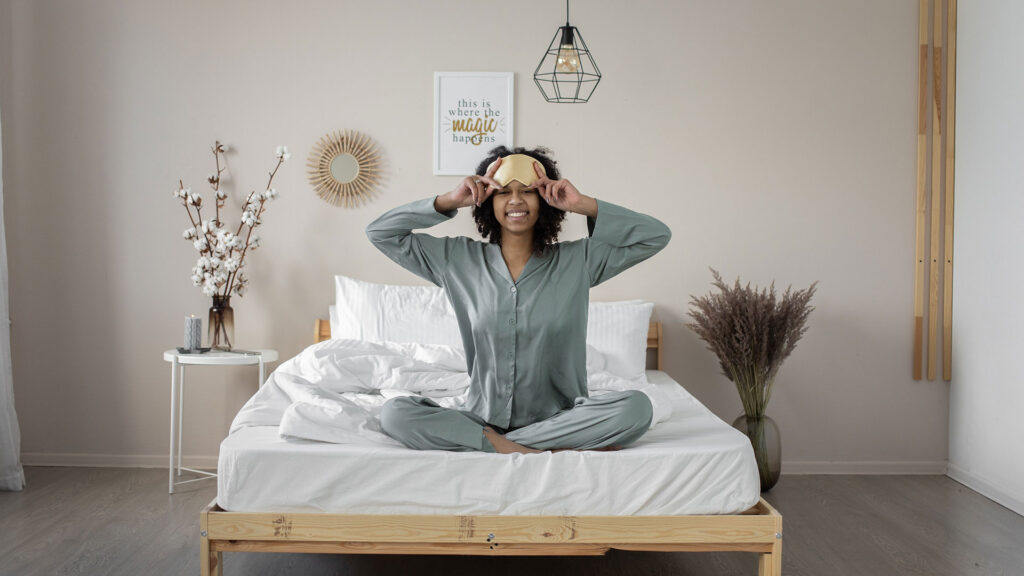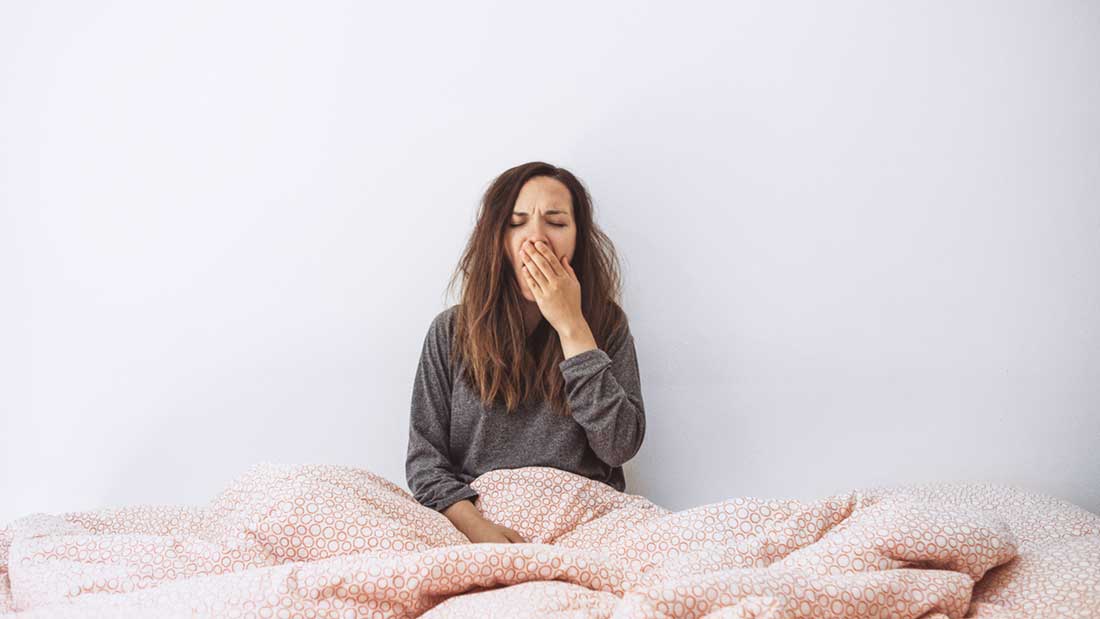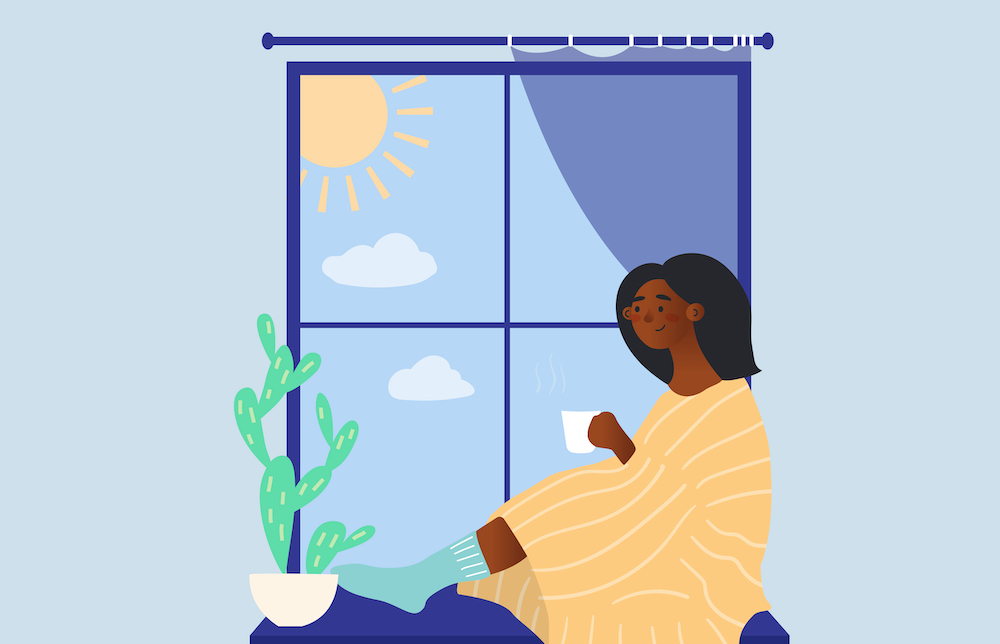
No one would be surprised to hear that sleep and mood are connected — feeling like you woke up on the wrong side of the bed or being considered “not a morning person” comes with a natural understanding that poor sleep keeps you from being your best self.
Researchers have also noticed a complex relationship between sleep, wakefulness, and mood, and plenty of studies aim to uncover how each aspect plays a role in daily life and functioning and the impacts of poor sleep on mental health and wellbeing. A recent University of Michigan and Dartmouth Health study found that mood patterns are closely tied to sleep and wake cycles, also known as circadian rhythms. (1)
Researchers at the University of Michigan focused on first-year training physician interns because they are high-stress professionals with irregular schedules, including night shifts. People with stressful jobs, particularly those whose work hours are unpredictable and can interfere with regular sleep and wake cycles, are especially at risk for mood disorders such as depression.
Many other populations consistently struggle with sleep, including women under 50, of whom 64 percent reportedly don’t get enough sleep and 69 percent experience frequent daily stress. Marginalized individuals also tend to get less adequate sleep, especially if facing extremely stressful life circumstances. Postpartum women also struggle disproportionately with insomnia. These populations tend to experience higher levels of mood disorders and mental health issues than others.
The Study at a Glance
The study had over 2,500 training physicians wear Fitbits that tracked data about their time awake and circadian rhythms and asked them to answer the question, “How was your mood today?” (1) The interns could answer this question whenever they chose to during the day. Researchers gathered more than 100,000 days of data over two years.
The results showed that circadian rhythms significantly influence mood over a 24-hour cycle. As time awake increased, the less positive mood tended to be, with anxiety and depression peaking in morning hours and moods being generally better around 5 p.m. Interestingly, moods were lowest around 5 a.m., which is typically when the body is in deep sleep or just waking up, which could be why mood was poor. Moreover, mood tended to worsen with prolonged wakefulness, so the longer the participants were awake, the worse their mood became.
Variations occurred among different people, and the researchers acknowledged that different sleep patterns, lifestyle choices, and health factors can also impact how sleep affects a person’s mood.
How Circadian Rhythms Affect Mood Throughout the Day
Waking up and going to bed around the same time each day, even on weekends, keeps your circadian rhythm in sync. “You’re more likely to feel awake and energized at 5 a.m., ready to seize the day, and pleasantly tired come 5 p.m., ready to wind down,” says Vikas Keshri, the Clinical Director of Bloom Clinical Care Counselling and Therapy Services.
Circadian rhythms directly influence mood by regulating hormones like cortisol (linked to stress) and serotonin (linked to happiness). “When your sleep schedule is erratic, these hormones get out of whack, leading to irritability, fatigue, and difficulty concentrating — imagine that 5 a.m. feeling after a restless night — that’s what happens when your circadian rhythm is disrupted,” explains Dr. Keshri.
During different times of day, there are peaks and valleys in terms of energy, alertness, feelings of calm, and anxiety, explains Dr. Shmaya Krinsky, a licensed psychologist and the founder of Anxiety and Behavioral Health Psychotherapy. So, when circadian rhythms are out of wack, they disrupt the delicate balance of neurotransmitters in the brain.
On a secondary level, Dr. Krinsky explains how awake and alert you are also strongly related to how you respond to stressors throughout the day. “When you first awake in the morning, your circadian rhythm will dictate that you are not as alert as you will be later in the day, which makes you more susceptible to stress early,” he says. So, an annoying work email can trigger different stress levels depending on the time of day it lands in your inbox.
The Relationship Between Sleep Duration and Mood
Sleep duration is another big factor in how even-keeled you’ll feel throughout the day. “Most adults need 7-8 hours of quality sleep to function at their best, and regularly skimping on sleep can lead to mood dips similar to a messed-up sleep schedule,” explains Keshri. Sleeping less might mean you feel sluggish and grumpy at 5 p.m., even if you woke up at a decent hour.
“Too little or too much sleep is a cause and effect of mood issues and other mental health symptoms,” says Dr. Krinsky. For example, one of the diagnostic criteria of depression is a significant increase or decrease in amount of sleep. Dr. Krinsky explains this is likely due to factors similar to those listed above regarding alertness and neurochemical effects in the brain. Further, inconsistent or too little or too much sleep has behavioral consequences. Poor sleep may lead to sleeping late or napping, both of which can interfere with your schedule.
A likely overlooked factor is how this all plays out in terms of your social life. “The fatigue resulting from poor sleep may result in people not engaging in fun and meaningful activities, such as spending time with friends, simply because they are too tired,” says Dr. Krinsky. Being tired can make you unable to engage in activities with social connections and can interfere with relationships, which also impacts your mood and sleep, compounding the effects.
Using Wearable Technology to Monitor Mental Health and Adjust Habits
Tracking using Fitbits provided a look at circadian rhythms and mood in real-world settings rather than controlled laboratory environments. Wearable technology can guide chronotherapies for psychiatric illnesses, designed to fit each person’s unique circadian rhythm.
Wearable tech like Fitbits can be helpful tools — they track your sleep patterns and can nudge you towards a more consistent schedule, says Keshri. “They might not diagnose mental health issues directly, but by monitoring sleep trends, they can flag potential problems that might be affecting your mood,” he adds. While a Fitbit can’t read your mind, it can point you to habits promoting better sleep.
Although tech can offer interesting insights into your sleep habits, the data may not be as sophisticated as it seems. “It is important to recognize that they are not flawless and can sometimes make errors,” says Dr. Krinsky. Many trackers can record sleep duration and activity but don’t specifically track circadian rhythms and mental health.
Dr. Krinsky warns that it is crucial to consider when trackers report “poor nights of sleep” because it can become a self-fulfilling prophecy during the day since you expect to feel poorly and then subconsciously act accordingly. “When used well, though, they can offer facts that you could use to understand your habits and patterns better and can be used as effective tools and reminders to set healthy sleep goals and keep us accountable when we are not as consistent with our sleep as we want to be,” he adds.

10 Sleep Trends for 2024: Separating Fads from Science

Here’s Why You’re Waking Up Tired — Plus What To Do About It

Everything to Know About SleepSync, a New App Designed to Help Shift Workers Catch More Zs

Can The Circadian Rhythm Be Changed?
Sources
1. Mackay, Hannah; “UM study investigates how sleep impacts mood,” The Detroit News; https://www.detroitnews.com/story/life/wellness/2024/03/31/um-study-investigates-how-sleep-impacts-mood/73066083007/; March 31, 2024.
Keshr, Vikas. Author interview. April 2024.
Krinsky, Shmaya. Author interview. April 2024.
